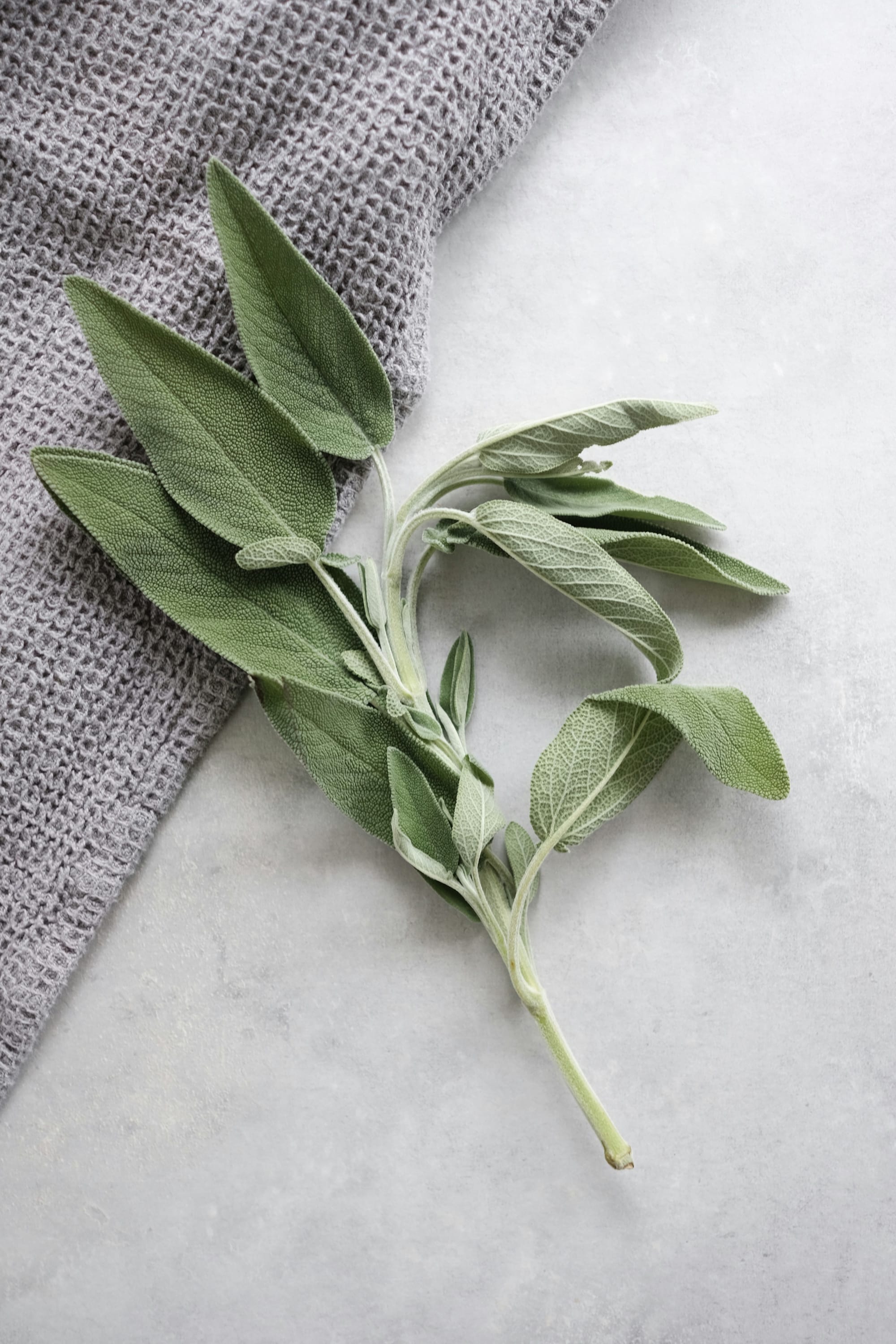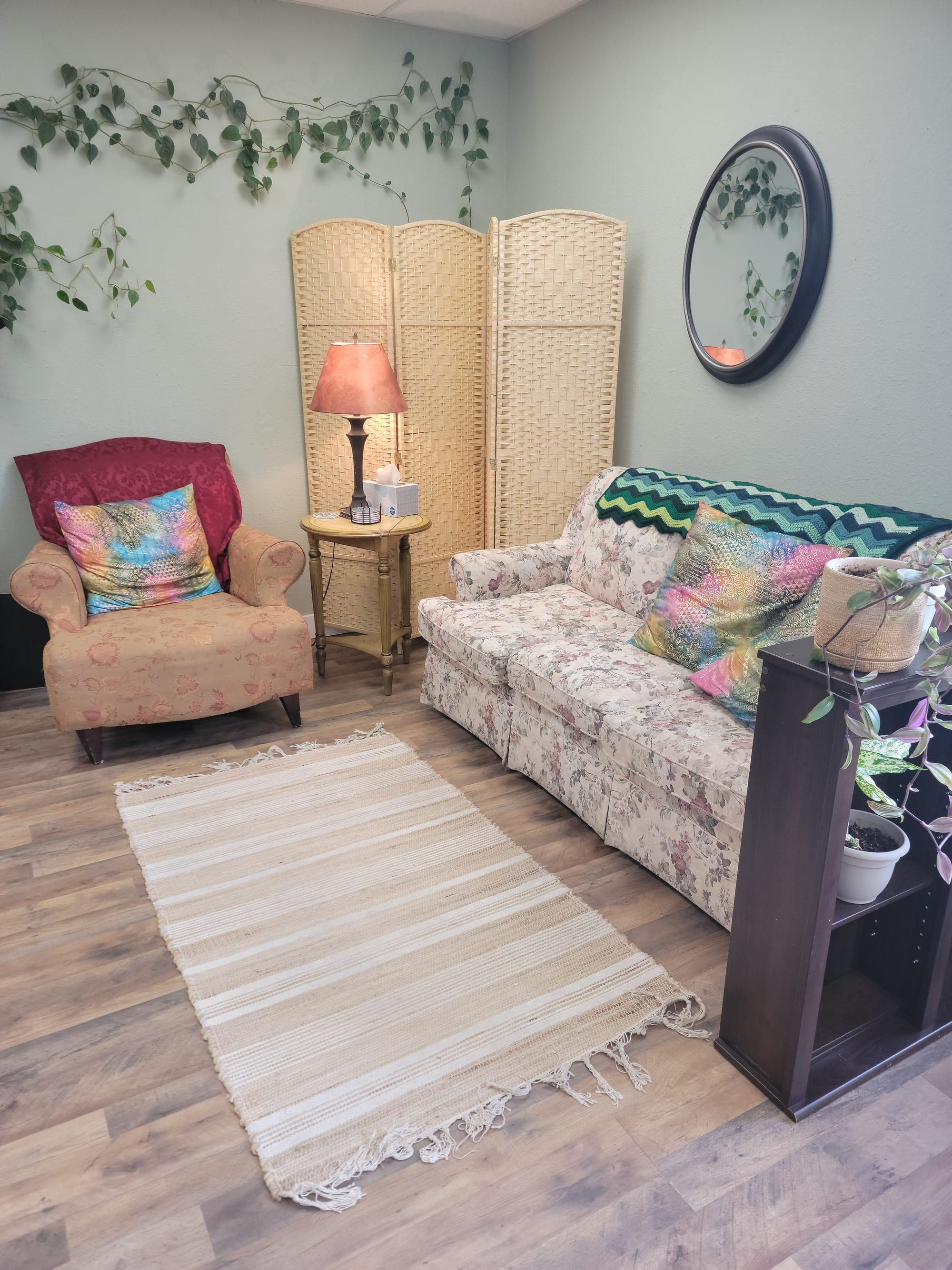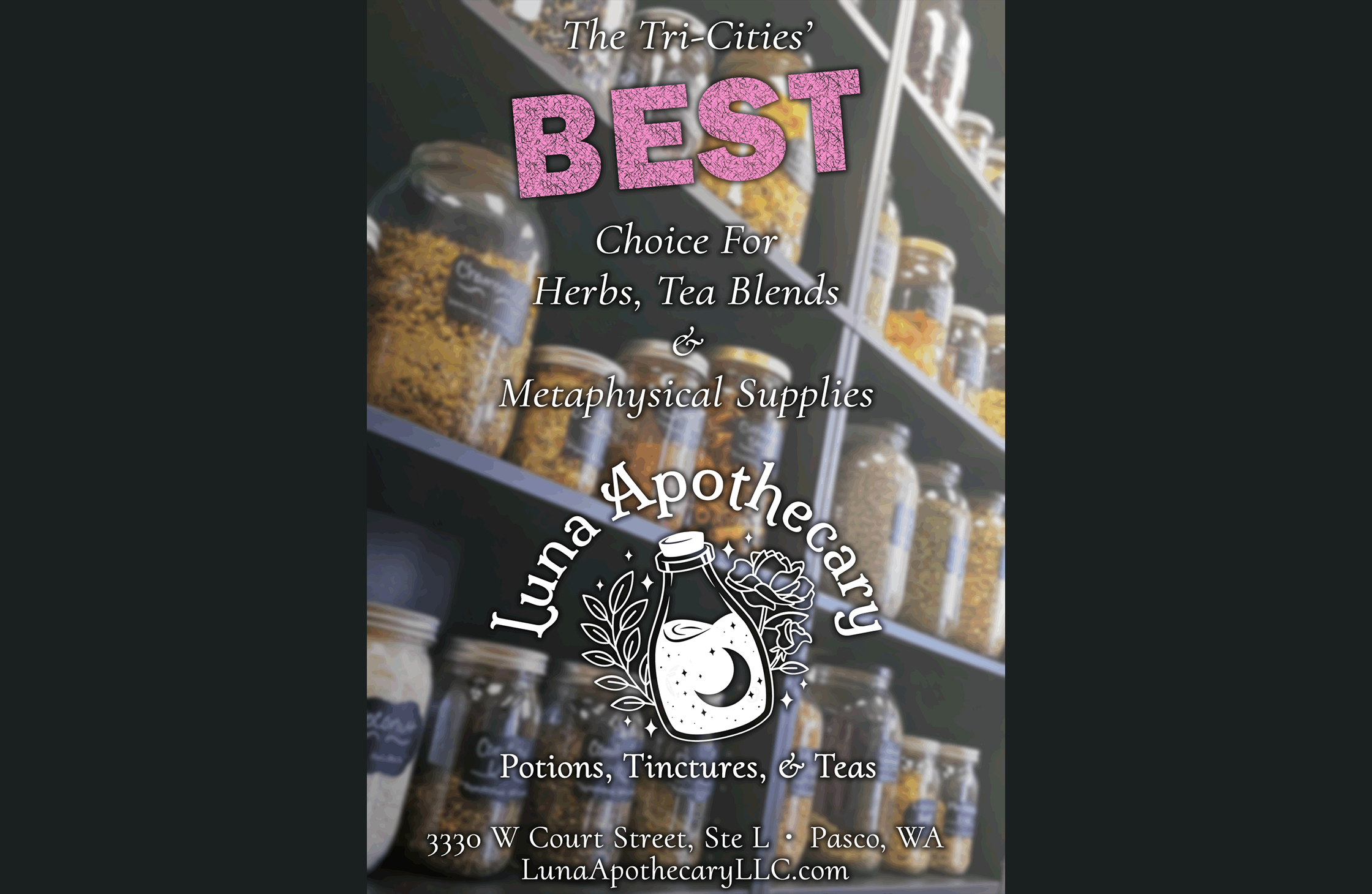Last month, I spoke with Jae Melland — Tumbleweird’s resident Tarot Time columnist and one of the new owners of Luna Apothecary in Pasco — all about the shop and their upcoming Grand Reopening.
Sara Quinn: Tell me all about Luna Apothecary!
Jae Melland: I was originally a service provider renting space at the apothecary to do my readings. It had a lot of herbs, goods from local vendors, and events. Over time the previous owner wished to step back, and the shop was going to shut down.
We were just starting to find our actual niche — what we really wanted to do — I guess that stage where you're trying to figure out what you want to be. We were beginning to feel like a community. But the owner needed to step away, and my business partner, Will, and I were able to step up. It happened very suddenly; the idea hit us… I think the middle of February, and things were official by March first. But it just happened.
S Q: Oh, wow! So really, just just now! Congratulations on the business.
J M: Yeah, we were scrambling because we didn't want it to go away. We really believe in what it could be.
At the start of the year, I had some readings, both from myself and my mentor, indicating the theme of this year was going to be big changes that would feel like a drastic shift, but had a great opportunity within, if embraced. It feels like we are really seizing that theme and now we are figuring out what we want to do with this chance we’ve been given.
We want to expand and carry most herbs that people commonly need, but we want to get into herbs that are native to this area, to kind of encourage people to get really comfortable with the plants that grow right around us. There are some that I love that grow here; I would love to encourage people to come just get familiar with what's here.
That's our vision for the future, when we're in a position to do that.
S Q: Very cool. May I ask, have you considered getting in touch with some of the local Tribes? Because they would be knowledgeable about native plants.
J M: That was going to be our next step. I need to get in touch with them for another reason, too: when we took over the business, we inherited some of the inventory, and there was a small batch of white sage here. I don't want to sell it and I don't feel right about using it. I was taught to respectfully bury it, but first I wanted to reach out to some of the local Tribes and see if they had any suggestions, or if they wanted it donated to them.
S Q: For the sake of the readers, do you want to explain why you wouldn't want to use white sage?

J M: Sure. White sage — for me, personally — is not from my background, and it feels inappropriate for me to use. I will admit when I was first in my very beginning stage, when I was twelve or thirteen years old, it was the plant you're taught to light on fire and…
S Q: …Smudge every room.
J M: Yes, yes, that.Then I was very kindly sat down and told about how it's endangered. It's over-harvested. That, and the other reason — the cultural reason — being that it was a plant that was so sacred to the Tribes here. It's not a plant like rosemary, where it was used in many different spiritual practices, so no one can have a full claim of it. This was very specific. And the way we were using it was a slap in the face.
S Q: So it's closed practice.
J M: Yes, it's a closed practice. It was even illegal for them to use it for spiritual purposes for so long; they weren't allowed to tend to it.
S Q: I didn't know that. I was only aware that it was appropriation of someone's closed practice.
J M: Yeah, I don’t remember the name of the law, but one of them was lifted way too recently. I want to say it was in the ‘70s when they were finally allowed to use white sage again, at least spiritually, without restrictions.
[Editor’s note: Look into the American Indian Religious Freedom Act for more information.]
So they were unable to use it legally for the longest time, and then, basically, New Age spiritualists — especially around the ‘70s — got really popular and they were kind of sticking things together to make what would be New Age spirituality. Here's the part where it gets kind of icky. They took what seemed “cool” and “spiritual” and “mystical” and “exotic” — (I hate that word) — and they looked at the Tribes that were using white sage, and just… took it.
So, I find that It's just something I don't want to mess with. It feels really disrespectful. I get why, if you were banned from a practice for so long, it might be really annoying that a lot of people are now using it and not even using it the right way.
S Q: Absolutely. That makes sense. I love that you are being mindful about appropriative practices.
J M: Yeah, definitely trying. At the end of the day, I'm still a white lady, so I’m sure I am missing something. But we keep learning. There is so much to educate yourself on; so that's why we're trying to remain open to feedback from anyone if they say, “I don't know if you should carry that in the store. I don't know if you're aware.” I don't want people to feel like they can't talk to us about stuff like that.

Why do people visit Luna Apothecary?
S Q: So, it sounds like Luna Apothecary will be mostly focused on herbs. What is the store like? If I'm a person just walking into your shop for the first time and I don't know anything, what am I confronted with?
J M: House-made tea blends and metaphysical supplies.
We don't want to full-on be a New Age shop, but we want it to be broad enough… In my opinion, holistic healing has to come from multiple areas of your life, and so that is going to include modern medicine and that is also going to include herbs and the spiritual balance of things, too. So we have a little bit of everything, basically.
We do have things to smoke cleanse that aren't white sage; we have tjärved sticks (which are from naturally-fallen pine trees from Sweden). We have a few holistic body care things, too — mouthwash and stuff like that. Basically, it's a place to heal physically and mentally and emotionally — and spiritually as well, for that part of your journey.
S Q: What kinds of questions do you tend to get from customers?
J M: I would say we have two main different types of scenarios that come in. A lot of times, we have people who come in and they say, “I've tried everything, I've been to my doctor. I can't get this pain under control.” That's what we ask when it comes to certain things — if you've already talked to your doctor. Usually, it's stuff like cramps, things like that that get dismissed.
Then we might have a tea blend to recommend. We have one that's called Cramp Ease, so if we’re helping with that particular pain, we walk them through how to use it.
S Q: What’s in it? Because I am very interested.
J M: It has things like red raspberry leaf, and other ingredients that basically help with regulation of pain and hormonal fluctuations. That’s a pretty common tea we sell, as we do get a lot of women coming in that need something to help address a problem — hormones, or cramping, or anxiety and stress — and the medicines they're using either aren't enough, or they need to go off of it because of an allergy they developed, or side effects that are painful, and they need to find an alternative. Other people just come in because they want a tasty tea!
S Q: Haha, yeah.
J M: So that's a pretty common scenario: someone whose symptoms have been dismissed for so long and they need something to help. And some people come in having done their research, and want to buy the herbs themselves instead of a blend.
And if we don't know something, we have books in the store that we can pull out together on the counter and just look through with the person until we can find something.
S Q: I love that you do research with your customers together. That's nice.
J M: Yeah, and we have a few people who've been coming here since the beginning, too. Those customers have an existing connection here, and we want to work together as a team to find what works best for them.
When there’s something we don't know, if someone has any concerns, we will look it up together just to double check. We'll go through the books. There's always Google, too, but I love the backup of the books, because they usually list their sources. We'll figure it out together.
It's kind of like a nice back and forth with people. We even have our little seating area so that nobody feels like they have to come in, find exactly what they want, and get out. No… people can sit there with the coffee table and the books out, and talk it out with us until they’re happy.
S Q: That's awesome. And honestly, they could always just write down ingredients and bring them to their doctor, too.
J M: Absolutely! Find out if there’s anything they should be concerned about with their doctor. We definitely want to help bridge the gap between modern medicine and natural medicine, rather than treat it like it has to be one or the other. Take your antibiotics if you need them!
S Q: Yeah. I genuinely have a huge problem with a lot of spiritual ladies, because they say things like, “You need to stop taking that medication. It's poisoning you.” But the truth is that I’m more myself because I’m medicated. I like being able to function, so…
J M: Exactly. And there are a lot of spiritual communities that I personally don't feel super comfortable in. It's not a safe place for people who have a history of mental illness or other issues that are hard to talk about because people will diminish it, or say it's just your spiritual awakening, you're fine.
S Q: Oof. That sounds like it wouldn’t be safe for people with neurodivergencies, either.
J M: Yeah. It's not all a ‘superpower’. There are real issues there that need to be balanced. That’s why we want to try to bridge that gap. There may be things you genuinely need help with beyond what just an herb can provide, so we want to be that judgment-free place. There’s a real ‘Who can be the most natural?’ competition that we want nothing to do with.
S Q: Yeah. Oh wow, you're right. There is a lot of competition there.
J M: It's weird. And it happens a lot in the spiritual community, too. And that's kind of where we want to create a space for people who want to explore their own authentic spiritual journey, as well. I would say it's kind of the antithesis of what I call ‘pop’ spirituality. We’re not about what's popular; I want people to be able to come here and connect with what feels holistic for them.
Like folk practices… Folk practices are usually rooted in tradition. It's not just regurgitating spiritual trends that they’ve heard. I want it to be grounded, and really something that people can safely attend without worrying that they're going to put themselves in a very delicate mental state or spiritual state.

What is inclusive spiritualism?
S Q: How do you address all of the competing ideas of traditional practices? Is it more of almost an atheistic view where you can decide how you want to frame it in your own mind?
J M: If it helps, I can start with my worldview, and go from there. While I am a practicing inclusive Norse Pagan, my true worldview is Animism — that things have a soul and an energy. So that's why it's not out of the question for me to think that a plant has preferences, and an energy and soul behind it, and that sometimes imbalances come from us being really disconnected from our world. What I love about animism is that you can have any sort of spirituality and still be an animist. All it is is the belief that there's more than just you.
And I've met animists who might not even believe it literally. But they know that they benefit from just behaving that way: assume that it could have a soul even if you don't hardcore believe that it does.
S Q: I don't think you have to believe in things literally in order for them to benefit you.
J M: Exactly.
S Q: There's the whole lucid dreaming thing, or most somatic therapies, where you're not actually changing things. But you're changing them in your mind, and that is actually powerful.
J M: That’s what matters. Yeah, exactly.
Even people who have taught me in my spiritual community have talked about how they personally don't believe that the stories and ideas are literal, and they leave room for that.
Overall, it's just kind of an acceptance of the fact that we don't really know.
S Q: Yes! We don't know, and that's fine. It's okay to not know.
J M: Yeah.
S Q: So let’s get back to the scenarios of people walking into the apothecary. The first common scenario was someone looking for herbal support for medical needs.
J M: Yeah, the second main one is on the spiritual side of things — people who are brand new to spirituality, or maybe they aren’t very active in the general spiritual community, but they're getting a branch of it and they come in for advice.
Lately, we’ve had a lot of people come in who were brand new to Witchcraft in general, or brand new to certain practices. A few Norse Pagans came in, as well, saying they were new to it and they were wanting some guidance on what to do there, which is what I love — that we still offer the services, too. I still do readings. I think that it's really cool that they can sit and chat and have a consultation done if they want, but we also can just talk to them out in the store, without doing a service and just kind of coach them through with what we know.
We will be filling the store with more products that are Handmade by myself or my partner. Usually we’re a bit more on the Norse Pagan influenced side in some of the spiritual stuff, just because where we're from. It's what I know.
S Q: It’s your heritage.
J M: Exactly. I think that what gets to the root of what causes people to appropriate other cultures is that we are disconnected from a lot of different spiritual folk practices that we might have had the privilege to grow up with if it was a different life.
S Q: I mean… white supremacy culture is to blame.
J M: Yeah. A lot of us have ancestors who willingly, for whatever reason, assimilated without carrying their folk practices forward. That creates a cultural void… and then people seek out that sense of belonging, and end up hurting people. Hurt people hurt people… which doesn't excuse it at all.
But I think that's how it happens. So I think one way to help with that is helping people connect with something more open that's been waiting for them. The white sage, for example — I was using that when I was twelve or thirteen without thinking it through. That didn't encourage me to get to know the plant, or to get to know why it was used.
But when you’re told that something is a closed practice, I think that you have two choices: you can either say, “No, it's not. I can use what I want,” and not educate yourself; or see it as an opportunity to push yourself — to see what you don't know about your own cultures or ones that are open. The Norse stuff is completely open. You don't have to have Norse heritage to practice it. So that's an option, too. But it did push me to discover tjärved , which I never would have discovered if I hadn’t been told no.
S Q: I think that, as white people, we are not used to being told no. I see a lot of white people get really defensive when we’re told that something is not for us.
J M: Yes. very much. They feel entitled to the information, too. They demand in-depth explanations as to why they can’t do something. And I can't imagine how exhausting it is to have to plead a fully lawyered-up case every time you have to try to tell someone not to appropriate your culture.
I'm hoping this place offers options for people — I want it to invite people to kindly explore different options.
We want the Apothecary to be a place where people can truly connect with themselves — not just copy what's on TikTok, what they've learned in the witch books that were on the bookshelves in the early 2000s.
Community space, community events
S Q: Well, it sounds like you’re creating a space where people can find community.
J M: Yeah. So, the shop has herbs for healing. It's got metaphysical stuff for your spiritual growth and healing, as well. But we're combining that with community. We're trying to build a community of people who are looking for something authentic.
We do Lunar Gatherings, celebrating every new and full moon. They are free to attend; people can just gather and be in community together. And we do a guided meditation together that is specifically non-denominational. It's just really about you and your higher self; that’s as far as we'll go. And then we debrief at the end, to talk things out. It's really cool.
We want to be able to offer those free events for people to keep it accessible. It’s about spiritual balance. You have to give back in order to be supported, and this is our way of wanting to make sure that people have somewhere to go when they're really craving that spiritual connection.
We are going to offer workshops, too. We've been practicing making our own incense. I want people to be able to come and learn stuff like that, and I don't know it all, but others out there do, so we can just kind of fill in the gaps together.
S Q: Where is Luna Apothecary located?
J M: Right near CBC. One thing I love about this place is that it’s here in Pasco. Oftentimes, people choose Richland or Kennewick for stuff like this; but the first customers the Apothecary had were a bunch of people who lived in Pasco. And a common thing they said was, “I'm so excited something like this is here. Everyone forgets Pasco.” And it feels really good to be here. Right now, I literally could walk here to the shop. It feels good to be putting that energy into the town that is my home.
We are really excited to continue to grow here, and can’t wait to meet and assist people on their journeys. We welcome everyone to stop by and get to know us or check us out on our website and social media pages to see what we do next!
Luna Apothecary is at https://lunaapothecaryllc.com/, and on Instagram: lunaapothecaryllc and Facebook: Luna-Apothecary-LLC
Luna Apothecary
3330 West Court St Suite L , Pasco, WA, United States, Washington
Open Wednesday–Saturday from 11am–5pm
Sara Quinn is the Editor in Chief at Tumbleweird and serves on the board of Tri-City Area Gaming. She lives with her amazing spouse (Brendan), and her doggos (Jewel and Ruby). Sara makes art, writes stuff, reads A TON, and plays a lot of video games. 💜


